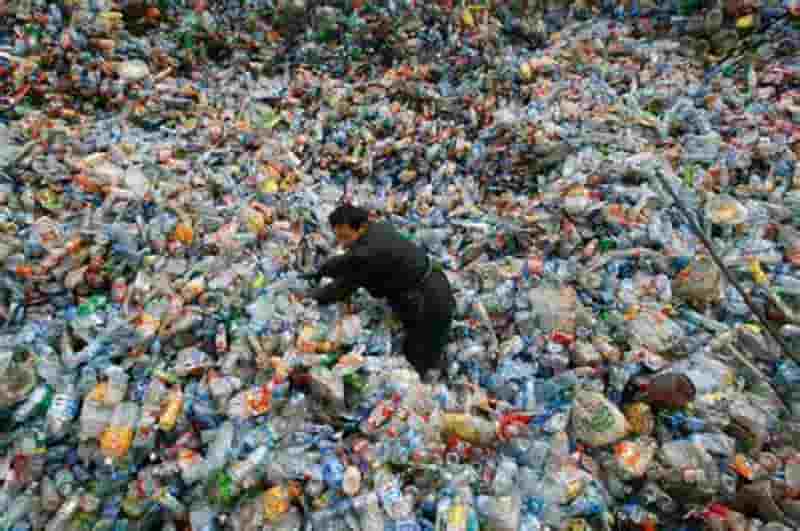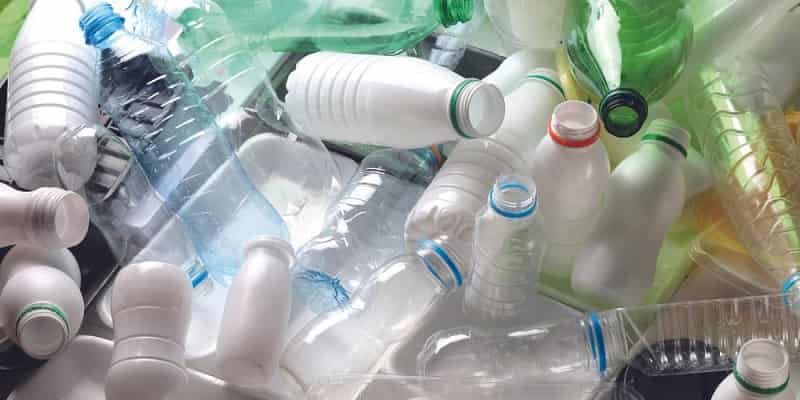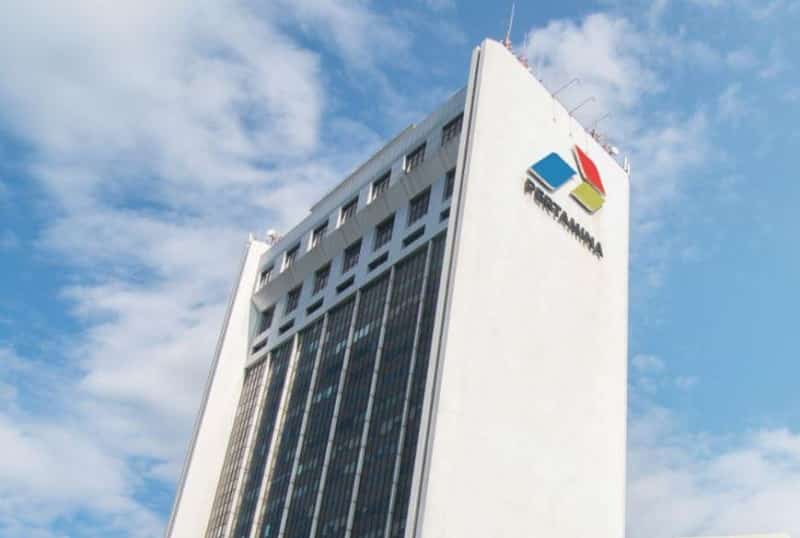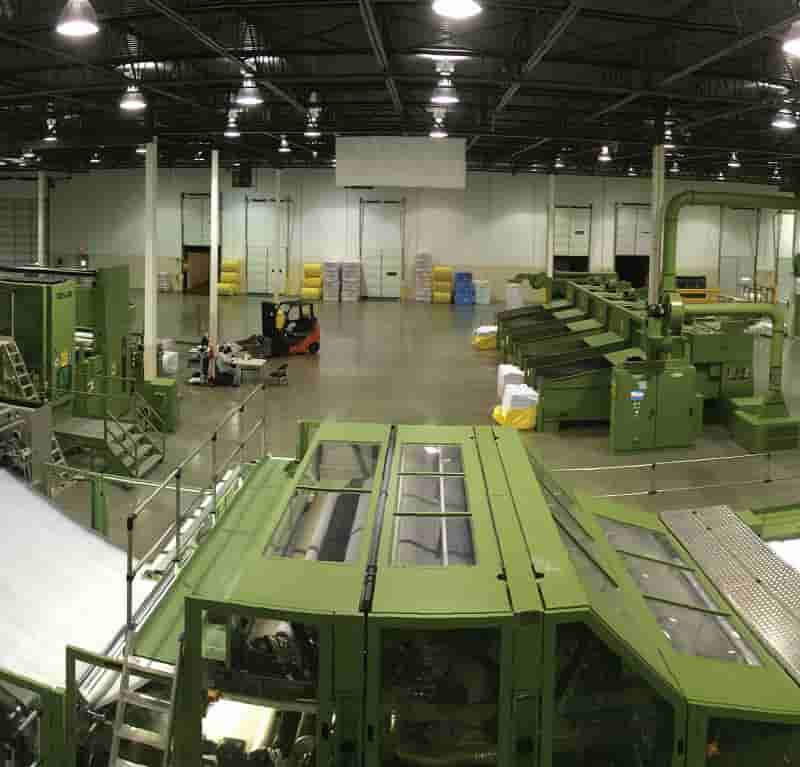Nonwovens Bioethanol Incredible Enzymatic Biomaterials 01-07-2023 - Arhive
Nonwovens Bioethanol
-China’s plastic products output in May 2023 was approximately 6.3 million tonnes, marking a 3.3% decrease compared to the previous year
This information is based on data provided by the National Bureau of Statistics of China. From January to May 2023, the total output reached 29.35 million tonnes, representing a 2% decline compared to the same period last year. In 2022, China’s plastic products production amounted to approximately 77.72 million tonnes, showing a 4.3% decrease from 2021. The reduced output in 2022 was influenced by lower downstream run rates in certain regions due to COVID-related lockdowns. Furthermore, the decline in overseas orders, triggered by economic recessions abroad, also contributed to the year-on-year drop in plastic products output.
The year-on-year decline has become less significant in January-May this year, primarily due to the recovery of social and economic activities as China entered a new stage of COVID-19 response. Nonwovens Bioethanol
It is worth noting that China’s Kingfa Science & Technology is planning to increase investments in the recycling business. The company aims to expand its production capacity of recycled plastics to 1 million tonnes per year by 2025, up from 400,000 tonnes per year in 2021. This expansion will involve adding 400,000 tonnes per year of capacity to existing sites in China and an additional 200,000 tonnes per year through grassroots projects in Europe and Southeast Asia.

-Why we must invest in processing to meet recycling goals
Most waste management schemes rely on mechanical recycling — a method that Greenpeace argues“will always fail” for plastics because they are “virtually impossible to sort.” Here, Stephen Harding, managing director of Gough Engineering, argues companies must invest in processing equipment to recover and gain value from their recycled products, such as plastics masterbatch.
The EC has ruled that EU states must reduce packaging waste by five per cent by 2030. These rules cover both packaging design and waste management. Greenpeace is right to address the shortcomings of current mechanical recycling when dealing with plastics. The organisation’s Circular Claims Fall Flat Again report also highlights that plastic recycling rates declined to about 5 per cent in 2021, down from 8.7 per cent in 2018.
The report suggests that a lack of recycling infrastructure has impeded how companies deal with plastic waste. Frankly, we agree. Nonwovens Bioethanol
Today’s recycling processing centres are not equipped to deal with the influx of recycling they receive — let alone the ability to meet ambitious new targets.What’s more, these centres must resize inconsistent shapes of various materials into a consistently-shaped final product. The answer to these challenges is to invest in shredding/granulation, sieving and sorting equipment.
Sorting products
Industrial sieves are used across almost all sectors to classify and sort products. Vibratory sieves are often used to sort raw materials such as powders and ingredients through different mesh aperture sizes, ensuring the end-product is of a uniform size. For recycling, sieves are used in a multitude of ways. A common method is to sort polyethylene terephthalate (PET) bottles. Nonwovens Bioethanol
Collected post-consumer PET bottles are delivered to recycling centres to be mechanically separated from other materials and sorted by colour for specific applications or pricing. In addition to this application, industrial sieves and screens can be used to separate everything from scarcemetals in electronics, right through to elements of household and construction waste. In fact, greaterinvestment in this kind of equipment could solve a plethora of recycling challenges — as well as reducing, or avoiding altogether, land fill charges for certain products.
A case study
Let’s look at the example of a recycling company in Norfolk, UK, that required a screening operation to separate quality classifications of glass fibres. In this instance, Gough Engineering recommended using the Vibrecon GVC5 separator.
The system is designed to order and is used to remove fine particles, separating oversize and agglomerates and conveying between processes. Multiple screening decks can be also included in a single system to separate product into two, three or four decks. For the recycling company, the system was supplied with two decks constructed in the stainless steel grade 304.
The Vibrecon classified glass fibres at 750 kgs per hour. The top deck discharges any oversized particles, and the bottom deck is designed for easy discharge of particles that are fine or undersized, which leaves the middle deck for ejecting good material. Using this method, the recycling centre could ensure that all particles are separated effectively. As well as recycling glass fibres, The Vibrecon circulatory vibratory separator is widely used to recycle a variety of other materials. Nonwovens Bioethanol
This includes several decades of use in plastics, polymer, chemicals, powders and ingredients separation.

-Pertamina, the Indonesian state energy company, has announced its plans to commence the production of bioethanol from sugarcane and cassava this year
Additionally, they have already initiated the production of green hydrogen using geothermal energy, according to Hydrocarbonprocessing.
Indonesia, the largest consumer of palm oil biodiesel in the world, has been actively working to implement bioethanol mandates for gasoline in order to reduce fuel imports and carbon emissions. However, one of the challenges faced is ensuring an adequate supply of feedstock. Pertamina CEO Nicke Widyawati shared during a conference, “This year, we will introduce our new products: bioethanol made from sugarcane and cassava. There are plentiful feedstock options available.
Palm oil is used for biodiesel, while sugarcane and cassava are suitable for ethanol production.” Nonwovens Bioethanol
The introduction of biodiesel mandates in the Southeast Asian country has resulted in significant savings in diesel import costs. Last year, Pertamina announced its intention to commence a trial for hydrogen production in 2023 at a geothermal plant located in Ulubelu, Sumatra. The goal is to produce 100 kg (220 lb) of hydrogen per day.
Widyawati highlighted Indonesia’s substantial geothermal potential, estimated at around 27 gigawatts (GW), with less than 10% currently utilized for electricity generation. She expressed an ambitious target to double or triple the geothermal capacity within the next five to seven years. This expansion aims not only to generate electricity but also to produce green hydrogen. Furthermore, hydrogen production has already begun, according to her statements at the conference.
In addition, Widyawati reiterated Pertamina’s previous denial of purchasing crude oil from Russia, which has been subjected to Western sanctions.
Although ship-tracking data has indicated Russian oil being discharged in Indonesia, it is common for such cargoes to be transferred to other vessels for delivery to different locations. Nonwovens Bioethanol
It is worth noting that ExxonMobil and Pertamina are collaborating on a regional carbon capture and storage project in Indonesia. The recently signed Heads of Agreement builds upon a joint study and memorandum of understanding established during COP26 in Glasgow, Scotland. The project’s purpose is to assess carbon capture and storage technologies, low-carbon hydrogen, and geologic data.

-AJ Nonwovens officially opens new plant
AstenJohnson, a global nonwovens and textile manufacturer, has opened its new needlepunch plant in Waco, Texas, the company’s eight facility in North America.
AstenJohnson is a manufacturer of pulp & paper machine clothing, advanced technical fabrics, filaments, and nonwoven fabrics for filtration, automotive, cured-in-place piping and composites. The company has manufacturing facilities in Europe, Asia and North America, with corporate headquarters in Charleston, South Carolina.
The event was marked with a ribbon cutting ceremony attended by AstenJohnson business leaders, government representatives and members of the local community.
Strategically located in Waco, the plant will focus on supplying nonwovens fabrics for the Group’s Eagle Nonwovens and Foss Performance Materials business units and in particular, growth markets including auto light-weighting and composite manufacturing.
In addition to the latest needlepunch nonwovens technology, the plant will be clean, air-conditioned, and will have a strong focus on sustainable business practices. Described as a model of sustainability and energy efficiency, with environmental initiatives integrated into its design, AstenJohnson said it was committed to minimizing its impact on the environment while delivering superior quality products, in keeping with its Sustainability initiatives. Nonwovens Bioethanol

–Origin Materials has made a groundbreaking announcement regarding the commencement of operations at Origin 1, the world’s inaugural commercial CMF plant
This milestone achievement marks the availability of a fundamental chemical building block, CMF, on a commercial scale for the first time.
Situated in Sarnia, Ontario, the plant will serve as an innovation center dedicated to scaling up and deploying the company’s core technology platform. Emphasis will be placed on funded joint development programs and the qualification of materials for higher-value applications. Nonwovens Bioethanol
Origin Materials, Inc. (referred to as “Origin,” “Origin Materials,” or the “Company”) (NASDAQ: ORGN, ORGNW), the foremost provider of carbon-negative materials, is committed to facilitating the global transition to sustainable materials. In accordance with prior projections, the company has initiated the startup process at Origin 1.
John Bissell, Co-Founder and Co-CEO of Origin Materials, expressed his excitement about the initiation of operations at Origin 1, describing it as a momentous accomplishment in their mission to decarbonize materials worldwide. Bissell stated, “This plant significantly scales up our revolutionary core technology platform. We anticipate that the impact of our platform intermediates, CMF and HTC, will be transformative for the chemical industry and manufacturing processes worldwide.” Nonwovens Bioethanol
The newly established plant will supply various industries with intermediate chemicals and materials, applicable to a wide array of end markets such as clothing, textiles, plastics, packaging, automotive parts, tires, carpeting, toys, fuels, and more. This market has a value of approximately $1 trillion. The facility represents a substantial upscaling of Origin’s technology platform, enabling the conversion of sustainable wood residues into versatile intermediate chemicals.
CMF (chloromethyl furfural), a versatile chemical building block, holds the potential to produce numerous downstream products. One such product is para-xylene, a precursor to PET plastic, while FDCA (furandicarboxylic acid) can be utilized in various sustainable products and materials, including the next-generation polymer PEF (polyethylene furanoate). Additionally, the plant will generate HTC (hydrothermal carbon), which finds application in the production of sustainable carbon black for automotive tires.
Bissell expressed his enthusiasm, stating, “We are delighted to offer our intermediates to industries on an unprecedented scale. The commercialization of CMF is a historic milestone, comparable to that of ethylene. After over a decade of pilot-scale work with CMF, we are thrilled to commence commercial production in Sarnia.”
Origin 1 will operate with the goal of meeting customer demand for qualification and sampling. Furthermore, the plant is expected to play a vital role in developing higher-value products and applications for CMF, HTC, and other co-products. These premium offerings are projected to be manufactured and distributed on a global scale from future plants, including Origin 2, Origin 3, and potentially licensed facilities.
Bissell acknowledged the resilience of the team in overcoming challenges posed by the pandemic and supply chain disruptions, highlighting the startup of Origin 1 as evidence of their strength. Nonwovens Bioethanol
He affirmed the company’s readiness to meet substantial customer demand for their renewable and carbon-negative products, as they continue their mission to drive the world’s transition to sustainable materials.
